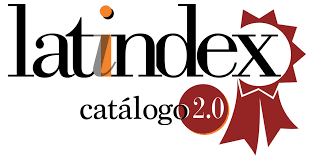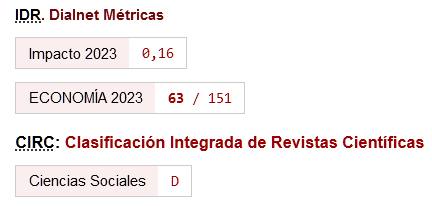El metabolismo social del País Vasco desde el análisis de flujos materiales.
Palabras clave:
Análisis de Flujos de Materiales, Desmaterialización, Metabolismo SocialResumen
La desvinculación de la mejora del bienestar respecto del uso de los recursos y de la contaminación es esencial para lograr un desarrollo sostenible. Para avanzar en esta dirección es preciso partir del conocimiento del metabolismo de la sociedad. Es decir, debemos analizar en qué medida nuestras sociedades “ingieren” materias primas, que son “metabolizadas” para producir bienes y servicios, y “excretan” residuos en forma de materiales desechados y contaminación. De esta forma obtendremos una visión sistémica de este metabolismo social, analizando los flujos físicos de recursos naturales desde su extracción hasta su eliminación final, pasando por los procesos de producción, uso y reciclaje, y teniendo en cuenta las pérdidas a lo largo del camino. En última instancia, se trata de relacionar el consumo de recursos naturales con la capacidad del medio ambiente para proporcionar recursos y absorber residuos. Este artículo ofrece una visión global del fundamento físico de la sociedad vasca, partiendo del Análisis de los Flujos de Materiales asociados a sus actividades de producción y consumo. Para ello se presenta la evolución de una serie de indicadores de uso de materiales, generación de residuos, comercio exterior y acumulación de stocks que permiten analizar la senda seguida por el País Vasco hacia la (in)sostenibilidad.
Descargas
Citas
Adriaanse, A., Brigenzu, S., Hammond, A., Moriguchi, Y., Rodenburg, E., Rogich, D., Schütz, H. (1997). Resource flows. The material basis of industrial economies. World Resource Institute, Washington D.C.
Almenar R., Bono E., García E. (1998). La sostenibilidad del desarrollo: el caso valenciano. Fundació Bancaixa, Valencia.
Alonso, F., Bailón, L. (2003). Balance y cuentas de flujos de materiales. Documentos de Trabajo 3/03. INE, Madrid.
Arto, I. (2002). Necesidad Total de Materiales de la Comunidad Autónoma del País Vasco. NTM 2002. Serie Programa Marco Ambiental nº7. Sociedad Pública de Gestión Ambiental - IHOBE, Bilbao.
Arto, I. (2003). Requerimientos Totales de Materiales en el País Vasco. Economía Industrial 351, 27-58.
Ayres, R. U. (1989). Industrial metabolism. En Technology and environment. Ausubel, J., Sladovich, H. (eds.). National Academy Press, Washington, DC.
Ayres, R. U. (2002). On industrial ecosystems. En A Handbook of industrial ecology. Ayres, R. U., Ayres, L. W. (eds.). Edwars Elgar, Cheltenham, UK. https://doi.org/10.4337/9781843765479.00013
Ballester, F., Capote, A. (2001). Movimiento de tierras. Su tecnología. Universidad de Cantabria. Departamento de transportes y Tecnología de proyectos.
Bartelmus, P. (2003). EEA-2003: Accounting for sustainable development? Ecological Economics 61, 613-616. https://doi.org/10.1016/j.ecolecon.2006.09.008
Bounkhay, M., López, M. J. (2006). La comptabilité des flux de matières en Région wallonne. Institut de Conseil et d'Etudes en Développement Durable (ICEDD asbl).
Bringezu, S., Schütz, H. (2001a). Material use indicators for the European Union. Working Paper nº 2/2001/B/2. Eurostat, Luxembourg.
Bringezu, S., Schütz, H. (2001b). Total Material Requirement of the European Union. European Environment Agency, Copenhagen.
Bringezu, S., Schütz, H. (2001c). Total Material Requirement of the European Union. Technical part. European Environment Agency, Copenhagen.
Bringezu, S., Schütz, H. (2008). Final report: Resource consumption of Germany - indicators and definitons. Federal Environment Agency, Dessa-Roblau.
Bringezu, S., Schütz, H., Moll, S. (2003). Rationale for and interpretation of economy-wide materials flow analysis and derived indicators. Journal of Industrial Ecology 7, 2, 43-64. https://doi.org/10.1162/108819803322564343
Cañellas, S., Gonzalez A.C., Puig, I., Russi, D., Sendra, C., Sojo, A. (2004). Material flow accounting of Spain. International Journal of Global Environmental Issues 4, 229-239. https://doi.org/10.1504/IJGENVI.2004.006052
Carpintero, O. (2002). La sostenibilidad ambiental de la economía española: Flujos de energía, materiales y huella ecológica, 1955-1995. Texto presentado al IX Simposio de Historia Económica celebrado en Barcelona el 6 y 7 de junio de 2002.
Carpintero, O. (2003). Los requerimientos totales de materiales de la economía española. Una visión a largo plazo: 1955-2000. Economía Industrial 351, 115-128.
Carpintero, O. (2005). El metabolismo de la economía española. Recursos naturales y huella ecológica (1955-2000). Fundación César Manrique.
Comisión de las Comunidades Europeas (2000). Decisión de la Comisión, de 17 de Julio de 2000, relativa a la realización de un Inventario Europeo de Emisiones Contaminantes (EPER) con arreglo al artículo 15 de la Directiva 96/61/CE del Consejo relativa a la prevención y al control integrados de la contaminación (IPPC) (2000/479/CE). DOCE 192/L de 28-07-2000.
Consejo de la Unión Europea (2006). Estrategia revisada de la UE para un desarrollo sostenible. DOC 10917/06.
Doldán X. (2003). Energía, materiales y agua en la industria manufacturera gallega. Economía Industrial 352 ,25-45.
EUROSTAT (2001). Economy-wide material flow accounts and derived indicators. A methodological guide. European Communities, Luxembourg.
EUROSTAT (2002). Material use in the European Union 1980-2000: Indicators and analysis. European Communities, Luxembourg.
EUROSTAT (2007). Measuring progress towards a more sustainable Europe. 2007 monitoring report of the EU sustainable development strategy. European Communities, Luxembourg.
Fischer-Kowalski, M. (1998). Society's metabolism: The intellectual history of materials flow analysis, Part I: 1860-1970. Journal of Industrial Ecology 2, 1, 61-78. https://doi.org/10.1162/jiec.1998.2.1.61
Fischer-Kowalski, M., Hüttler W. (1998). Society's metabolism: The intellectual history of materials flow analysis, Part II, 1970-1998. Journal of Industrial Ecology 2, 4, 107-136. https://doi.org/10.1162/jiec.1998.2.4.107
Frosch, R. A., Gallopoulos, N. E. (1989). Strategies for manufacturing. Scientific American 261, 144-152. https://doi.org/10.1038/scientificamerican0989-144
Gazley, I., Bhuvanendran, D. (2005). Trends in UK material flows between 1970 and 2003. Office for Nacional Statistics (ed.). Economic Trends 619, 39-47.
Gobierno Vasco (2005). Estado del medio ambiente en la Comunidad Autónoma del País Vasco 2004. IHOBE, Sociedad Pública de Gestión Ambiental (ed.), Bilbao.
Gobierno Vasco (2007). II Programa Marco Ambiental de la Comunidad Autónoma del País Vasco 2007-2010. IHOBE, Sociedad Pública de Gestión Ambiental (ed.), Bilbao.
Hercowitz, M. (2003). Metabolismo social y turístico de Lanzarote. Cabildo de Lanzarote, Lanzarote.
ICONA (1987). Mapas de estados erosivos: cuenca hidrográfica del Ebro. Ministerio de Agricultura, Pesca y Alimentación, Madrid.
ICONA (1990). Mapas de estados erosivos: cuenca hidrográfica del Norte de España. Ministerio de Agricultura, Pesca y Alimentación, Madrid.
INE (2007). Cuentas de flujos de materiales. Serie 2000-2004. Instituto Nacional de Estadística.
ISTAT (2007). Flussi di materia dell'economia italiana. Anni 1980-2004. Istituto nazionale di statistica.
Mäenpää, I. (2002). Physical Input-Output Tables of Finland 1995 - solutions to some basic methodological problems. Fourteenth International Conference on Input-Output Techniques October 10-15, 2002, Montréal, Canada.
Mäenpää, I., Juutinen, A. (2002). Materials flows in Finland. Resource use in a small open economy. Journal of Industrial Ecology 5, 3, 33-48. https://doi.org/10.1162/108819801760049459
Martínez Alier, J. (2004). El ecologismo de los pobres. Conflictos ambientales y lenguajes de valoración. Icaria editorial, S.A., Barcelona.
Matthews, E., Amann, C., Fischer-Kowalski, M., Hüttler, W., Kleijn, R., Moriguchi, Y., Ottke, C., Rodenburg, E., Rodich, R., Schandl, H., van der Voet, E., Weisz, H., (2000). The weight of nations. Material outflows from industrial economies. World Resources Institute, Washington D.C.
Mayerat, A. M. (2007). Flux de matières en Suisse. Consommation de ressources par l'économie suisse entre 1990 et 2005. Office fédéral de la statistique (OFS), Neuchâtel.
Naciones Unidas (1993). Earth Summit: Agenda 21, the United Nations programme of action from Rio. United Nations, New York.
Naciones Unidas (2002). Plan of Implementation of the World Summit on Sustainable Development. En Report of the World Summit on Sustainable Development. Johannesburg, South Africa, 26 August-4 September 2002. United Nations, New York.
Naredo J.M., Frías J. (1988). Los flujos de materiales, los flujos de energía y los residuos. Comunidad de Madrid, Consejería de Economía, Documento de trabajo.
Naredo J.M., Frías J., (2003). El metabolismo económico de la conurbación madrileña. 1984-2001. Economía Industrial 351, 87-114.
Sendra, C., Gabarrell, X., Vicent, T. (2006). Análisis de los flujos de materiales de una región: Cataluña (1996-2000). Revista Iberoamericana de Economía Ecológica 4, 43-54.
Wuppertal Institute for Climate, Environment and Energy (2002). Resource use and efficiency of the UK economy. Department of Environment, Food and Rural Affairs, London.
Descargas
Publicado
Cómo citar
Número
Sección
Licencia
Esta licencia permite a terceros compartir (copiar y redistribuir el material en cualquier medio o formato) y adaptar (remezclar, transformar y crear a partir del material para cualquier finalidad, incluso comercial), siempre que se reconozca la autoría y la primera publicación en esta revista (La Revista, DOI de la obra), se proporcione un enlace a la licencia y se indique si se han realizado cambios en la obra.







